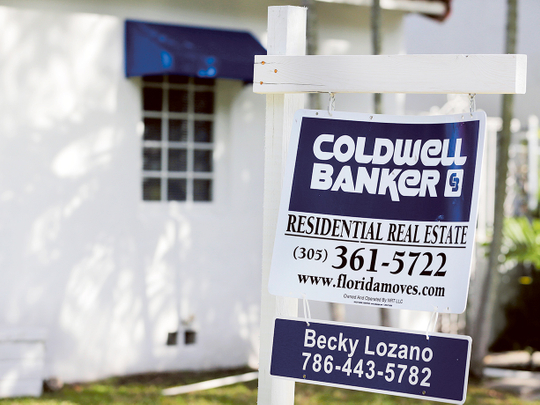
Washington: Should you buy a house or rent? It’s one of the most contentious topics among economists and econ writers, and there’s still no general agreement.
Recently, it was the subject of an online debate between Alex Tabarrok of George Mason University and Timothy B. Lee of Vox. Tabarrok gives reasons why renting is the right financial move; Lee counters with reasons why buying is smart.
I’ll go over some of these arguments, and add my own thoughts, but here is a preview of my conclusion: If you really want to own a house, buy a house. If it isn’t very important for you to own a house, don’t do it just for the supposed financial benefits.
With this rule of thumb, you can avoid all the complicated back-and-forth and probably get the decision right. But anyway, on to the pros and cons, which are interesting to think about.
The main reason to rent is diversification. When you own a house, a huge chunk of your wealth is tied up in a single asset. If your town has an economic slump, or if local zoning laws change, or if there’s a pollution incident your home’s value will go down, taking your net worth with it.
But if you rent, and you invest the extra money in a diversified portfolio of financial assets — stocks, bonds, real estate investment trusts — you will be safe from local shocks like that.
Home ownership also puts you in double jeopardy if you lose your job. Since both house prices and local labour markets are tied to the local economy, the same slump that cost you your job, and which makes it harder for you to find a new work in the area, also tends to cut the value of your house.
So owning a house makes it more likely that everything will go wrong in your financial life at the same time.
The third big downside of owning is mobility. Selling a house takes time and money, making it inconvenient to move — especially if you need to sell the old house to raise the money to buy a new one in a different place. This exacerbates the danger of getting caught in a local economic slump — the exact time when you need to move to find a new job will be the time it’s the most difficult to do so.
Some of the reasons usually given for owning a home are actually just reasons to buy REITs (real estate investment trusts). People like Lee point out that houses have lower returns than stocks, but they also have lower risk, because their prices fluctuate less than stock prices.
House prices are also not perfectly correlated with stocks, so they can actually help diversify. But both of these are arguments in favour of buying not one house, but a small piece of many houses scattered across the city, state or nation — in other words, shares in a REIT.
Home ownership isn’t without true upsides, of course. It means you don’t have to pay rent each month (though you do have to pay property tax, maintenance costs and interest and principal on your mortgage loan). Rent itself can be highly volatile and home ownership defrays this risk.
In addition, as Lee wisely points out, having a mortgage can be a sort of commitment device that forces you to save more of your income each month — since mortgage payments are investments in housing equity, they thus constitute saving. Although it’s possible to cancel out this saving by borrowing money against your house, most people don’t do this, so mortgages probably are a good behavioural finance nudge.
Finally, many people prefer owning to renting, because it gives them more control over their own living space, and fulfils part of the American dream.
Notice that except for avoiding rent volatility, most of the points in favour of home ownership are psychological, not financial. If you only care about maximising your net worth, and you’re not trying to speculate, then forget buying your own home and just invest in REITs — it’s the equivalent of buying a house, except you get diversification.
The only really good reason to buy a house is if you want to own a house. If you like home ownership a lot more than the average person — or if you want to use a mortgage to try to force yourself to save more money — then ignore the financial calculus and buy a house.
No financial planner can tell you what price to put on your dream.











